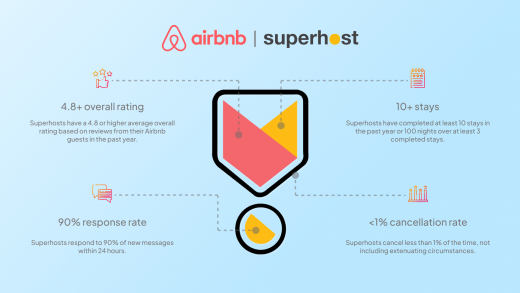In today’s fast-changing hosting market, securing the right funding is crucial. Whether you’re expanding your rental portfolio or just starting out with your Airbnb, understanding short-term rental loans is key to long-term success.
In this guide, we’ll break down the most common options, including bank loans, hard money loans, and DSCR loans. Each has its own benefits and considerations, and knowing the differences can help you choose the best financing strategy for your property.
By the end, you’ll know how to make informed decisions and confidently grow your short-term rental business.
With Hostex, you can automate over 70% of your daily hosting tasks and keep your calendars synced across all platforms. This lets you save time and focus on what truly matters, starting at just $4.9 per month.

Defining Short-Term Rental Loans
In the fast-paced world of short-term rentals, hosts often turn to short-term rental loans to secure the capital needed for growth. These loans provide funds for property upgrades, enhancing the guest experience, and expanding your rental portfolio.
Short-term rental loans serve as a strategic financial tool, giving hosts the flexibility to navigate challenges and seize opportunities. Whether you’re looking for traditional stability, addressing unique circumstances, or optimizing your financing strategy, these loans help you manage your rental business with confidence.
For hosts in the United States, this Airbnb Guide offers additional insights on funding your vacation rental business.
Generally, short-term rental hosts have three main financing options:
- Bank Loans
- Hard Money Loans
- DSCR Loans
Why Short-Term Rental Hosts Need Loans
In the competitive world of short-term rentals, hosts face diverse financial demands. Short-term rental Loans provide strategic solutions to address these challenges.
Meeting Growing Demand
As hosts expand their property portfolios, additional capital becomes essential. Loans enable seamless growth, helping hosts meet the increasing demand for short-term accommodations.
Elevating Guest Experience
Investing in upgrades, personalized amenities, and unique touches enhances the guest experience. Loans act as a financial catalyst, allowing hosts to improve properties and exceed guest expectations.
Adapting to Market Dynamics
The short-term rental market changes rapidly. Loans give hosts the flexibility to adjust to evolving guest preferences and market trends, keeping properties competitive and in demand.
Overcoming Property Challenges
Unexpected issues like facility repairs or damage require prompt attention. Loans provide the funds needed to resolve these problems quickly, maintaining property quality and guest satisfaction.
Navigating Income Fluctuations
Seasonal variations can affect rental income. Loans act as a buffer, helping hosts manage lean periods while sustaining operations and service quality.
Seizing Opportunities
New opportunities can arise unexpectedly in this fast-moving market. Loans give hosts the financial agility to act quickly and capitalize on trends or unique prospects.

Understanding the Different Types of Short-Term Rental Loans
When seeking financing for short-term rentals, hosts must understand the pros and cons of each loan type. Choosing the right option depends on your goals, property type, and financial situation.
1. Bank Loans
Bank loans are traditional financing options provided by established financial institutions. They involve a detailed review of your credit history and financial stability.
Pros
- Provide stable, reliable financing for long-term planning.
- Lower interest rates reduce the overall financial burden.
Cons
- Strict credit requirements may limit access for some hosts.
- Longer approval times can delay access to funds.
2. Hard Money Loans
Hard money loans are asset-based loans that focus on the property’s value rather than the borrower’s credit history. They are often ideal for hosts facing credit challenges or seeking faster access to capital.
Pros
- Flexibility in financing, prioritizing property value over credit history.
- A faster approval process allows hosts to act quickly.
Cons
- Higher interest rates reflect the increased risk for lenders.
3. DSCR Loans
Debt Service Coverage Ratio (DSCR) loans are designed for hosts with multiple income-generating properties. Lenders assess the property’s rental income and value to ensure cash flow can cover loan payments.
Pros
- Tailored financing for hosts looking to scale strategically.
- Evaluates rental income and property value for precise loan amounts.
Cons
- Requires strong rental income and property value, limiting eligibility for some hosts.

Key Considerations Before Choosing a Short-Term Rental Loan
Before committing to any short-term rental loan, it’s important to pause and evaluate carefully. A thoughtful approach ensures your financing supports growth rather than creating unexpected burdens. Here’s how I usually guide hosts:
1. Clarify Your Financial Needs
Identify exactly where you need funding. Is it for property upgrades, new amenities, marketing, or expanding your portfolio? Knowing this upfront helps you pick the right loan and spend efficiently.
2. Check Your Credit Profile
Your credit score affects approval and interest rates. Review your credit report, fix errors, and pay down high balances if possible. This small effort can save money over the life of the loan.
3. Explore All Loan Options
Consider bank loans, hard money loans, and DSCR loans. Compare interest rates, repayment terms, and eligibility requirements. Each type has strengths depending on your goals and property portfolio.
4. Seek Expert Advice
Talking to financial advisors can clarify the best loan structure for your situation. They can provide insight into repayment strategies and tax implications.
5. Read the Fine Print
Look closely at interest rates, repayment schedules, fees, and penalties. Hidden costs can make an otherwise attractive loan costly over time.
6. Compare Lenders
Don’t settle for the first offer. Compare multiple lenders, looking at both financial terms and their reputation. Reliability and support matter as much as numbers.
7. Understand Cash Flow Impact
Ensure that loan repayments align with your expected rental income. Factor in seasonality and potential vacancies so that you can maintain smooth operations.
8. Consider Long-Term Goals
Think about how this loan fits with your future plans. Will the terms still work if you add more properties or adjust pricing strategies?
9. Plan for Contingencies
Have backup plans for unexpected expenses or slower seasons. This ensures your business stays resilient even during tough market conditions.
10. Consult Legal Experts
Before signing, get legal advice. Understanding all obligations protects your interests and prevents surprises down the road.

How to Implement Short-Term Rental Loans
Getting a loan is just the first step. To make the most of short-term rental loans, you need a smart, practical plan. Here’s how I usually advise hosts to approach it:
1. Know Exactly What You Need
Before applying, be crystal clear about why you need the money. Are you upgrading your property, adding new amenities, or expanding your portfolio? Listing your priorities helps you use the funds wisely.
2. Pick the Right Loan for Your Situation
Not all loans are created equal. Think about your goals:
- Bank loans give you stability and lower interest, perfect for long-term investments.
- Hard money loans are fast and flexible if you need capital quickly.
- DSCR loans are ideal if you’re managing multiple rental properties and want to scale strategically.
3. Make a Practical Business Plan
Lenders love to see a clear plan, and so will you. Outline how the funds will be used, what returns you expect, and your timeline. It keeps you on track and makes the loan feel less risky.
4. Gather Your Paperwork Ahead of Time
Having your financial statements, tax records, and property income reports ready can save a lot of headaches. Being organized speeds up approval and shows you’re serious.
5. Keep Your Credit in Shape
A strong credit score often means better loan terms. Pay off debts, check for errors, and make sure everything is current. Small steps here can make a big difference.
6. Understand Rates and Terms
Interest rates matter, but so do repayment schedules, fees, and penalties. Pick the option that gives you flexibility without breaking your budget.
7. Don’t Be Afraid to Negotiate
Especially if you’re an experienced host, lenders might be open to better terms. Ask about lower rates, longer repayment periods, or fewer fees—it never hurts to try.
8. Use Funds Strategically
Stick to your plan. Focus on improvements that increase bookings, like new furniture, smart home upgrades, or better marketing. Every dollar should have a purpose.
9. Track Your Results
Keep an eye on income and expenses after spending the loan. Adjust pricing, marketing, or operations if needed to make sure your investment is paying off.
10. Plan for Repayment
Integrate loan repayments into your monthly cash flow. Remember, short-term rental income can fluctuate seasonally, so plan ahead to avoid surprises.

9 Tips for Managing Short-Term Rental Loans Effectively
Managing short-term rental loans successfully goes beyond simply securing funding. It requires a proactive approach that balances financial oversight with strategic growth. Here’s how experienced hosts approach it:
1. Know Your Loan Inside Out
Make sure you fully understand the interest rates, repayment schedules, and any fees associated with your loan. Clarity helps prevent surprises and keeps your finances on track.
2. Align Loans with Business Goals
Define clear objectives for how the loan will support your rental business. Whether it’s expanding your property portfolio or enhancing guest experiences, tie every dollar to a measurable outcome.
3. Budget Strategically
Create a detailed budget for how loan funds will be allocated. Prioritize improvements that directly boost revenue or guest satisfaction. Avoid spreading funds too thin.
4. Track Cash Flow Continuously
Monitor income and expenses closely. Regular oversight ensures you can make timely adjustments and maintain healthy operations even during slower periods.
5. Maintain a Financial Safety Net
Set aside funds for emergencies. Unexpected repairs or seasonal downturns can happen, and a reserve ensures you don’t fall behind on loan repayments.
6. Invest in High-Impact Upgrades
Use your loan funds on improvements that increase bookings and guest satisfaction. Small but meaningful upgrades often yield the best return on investment.
7. Optimize Bookings and Marketing
Implement smart booking strategies and diversify marketing channels. Maximize occupancy while keeping your pricing competitive.
8. Stay Ahead of Market Trends
Regularly review industry trends and guest preferences. Adapting early can give you a competitive edge and help you get the most value from your loan.
9. Learn from Fellow Hosts
Connect with other short-term rental hosts. Sharing insights and best practices helps you avoid common pitfalls and make smarter financial decisions.

Final Thought
Securing a short-term rental loan is only the first step; how you leverage it defines your long-term success. Beyond the standard considerations of loan type, interest rates, and repayment schedules, hosts should think strategically about risk management and scalability.
For instance, consider using loans not just for immediate property improvements, but to implement systems that reduce operational overhead. Investing in smart locks, automation tools, or property management software can enhance efficiency and reduce dependency on day-to-day manual tasks. Over time, these investments often yield higher returns than cosmetic upgrades alone.
Another often-overlooked strategy is to structure loans to create layered financing. Combining short-term loans for urgent improvements with longer-term financing for expansion allows hosts to balance cash flow without over-leveraging. This approach can also give you flexibility to pivot quickly as market demand changes.
Finally, think of short-term rental loans as a way to future-proof your business. Use the opportunity to experiment with premium offerings, niche marketing, or secondary locations. Loans can enable calculated risks that, if executed wisely, position your rental portfolio for long-term resilience and growth.




